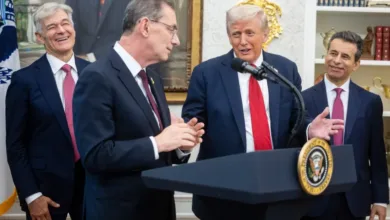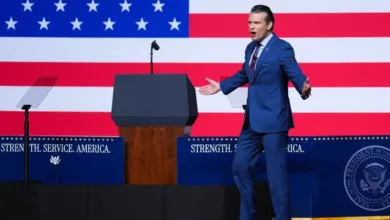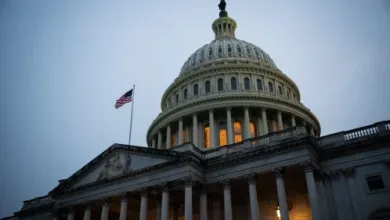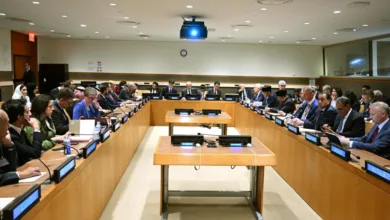Poland Responds to Trump: Russian Drone Incursion Was Not a Mistake
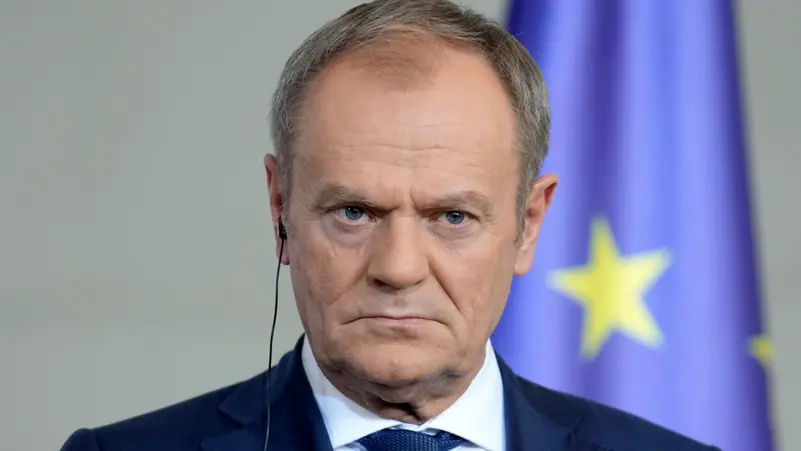
Poland has strongly rejected statements by former U.S. President Donald Trump suggesting that the recent incursion of nearly twenty Russian drones into Polish airspace might have been an “accident.” Polish Prime Minister Donald Tusk emphasized that the drone attack was deliberate, signaling Warsaw’s firm stance on protecting national sovereignty and highlighting the risks posed by ongoing tensions between Russia and NATO allies Breaking News.
Trump’s Comments and Warsaw’s Reaction
Trump told reporters that the drone violations on the night between Tuesday and Wednesday “might have been a mistake,” a comment that provoked strong backlash from Polish officials. In response, Tusk wrote on his social media account that Poland also wished the attack were an accident but insisted that it was not Trump News.
“This was a deliberate violation,” Tusk stressed, underlining Warsaw’s position that the sovereignty of NATO member states cannot be compromised. Analysts note that Trump’s comments, though likely intended to de-escalate tensions, risked minimizing the severity of Russia’s actions in European airspace U.S News.
European and NATO Response
The Russian drone incursion has caused widespread concern across Europe. NATO members have intensified air defense measures, with Poland receiving support from allies to intercept several drones World. French President Emmanuel Macron announced that France would deploy three Rafale fighter jets to assist Poland in protecting its airspace, while Germany and other NATO members reinforced their commitment to collective defense.
Analysts highlight that these actions demonstrate NATO’s readiness to respond to aerial threats, reaffirming the alliance’s deterrence strategy and ensuring that attacks on one member are addressed collectively this report.
The Strategic Implications of the Drone Attack
The drone incursion is seen as part of a broader pattern of Russian military provocations amid the ongoing Russia-Ukraine conflict. The incident has intensified European vigilance and prompted urgent consultations at the UN Security Council to assess regional security risks. Experts emphasize that deliberate breaches of NATO airspace could escalate tensions if left unaddressed.
Poland’s response underscores the strategic importance of airspace sovereignty and the necessity of coordinated defense mechanisms. The interception of some drones by NATO allies marked a precedent for active engagement by Western military forces in response to Russian provocations during the ongoing conflict analysis.
France and Germany Strengthen Air Defense
In addition to Poland’s own measures, France and Germany have taken proactive steps to bolster the country’s air defenses. France committed fighter jets, while Germany announced deployment of advanced radar and anti-aircraft systems. Analysts note that these measures send a clear message to Russia that NATO remains united and vigilant in protecting its member states detailed article.
The collaboration reflects NATO’s principle of collective defense, which ensures that threats to one member are treated as threats to all. This strengthens deterrence and demonstrates the alliance’s commitment to upholding international law and protecting European stability source.
Broader Geopolitical Impact
The drone attack has implications beyond immediate military concerns. It highlights vulnerabilities in European airspace and raises questions about Russia’s strategic intentions. Experts warn that deliberate incursions may test NATO’s readiness and prompt policy revisions to prevent future violations report.
Poland’s firm response also emphasizes the importance of NATO cohesion, reassuring member states that any violation of sovereignty will elicit a coordinated political and military response. This stance is expected to influence ongoing diplomatic efforts regarding the Russia-Ukraine conflict and broader European security arrangements
Poland’s rejection of Trump’s “mistake” comment on Russian drones underscores the seriousness of territorial violations and the strategic role of NATO in defending its members. European allies, led by France and Germany, have reinforced air defenses, while Warsaw continues to advocate for coordinated international measures to deter future provocations. Analysts suggest that these actions will strengthen regional security and signal to Russia that NATO’s commitment to its members remains unyielding.

